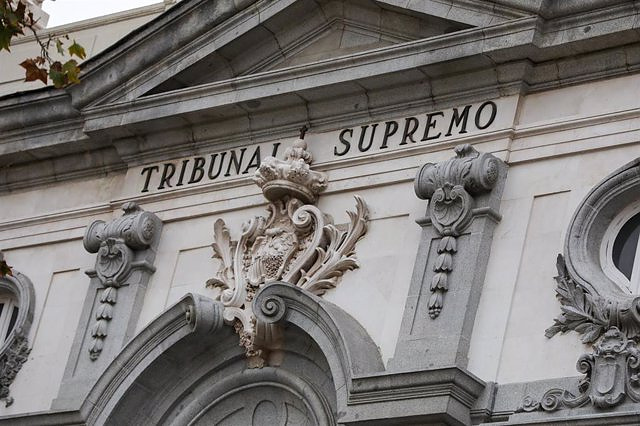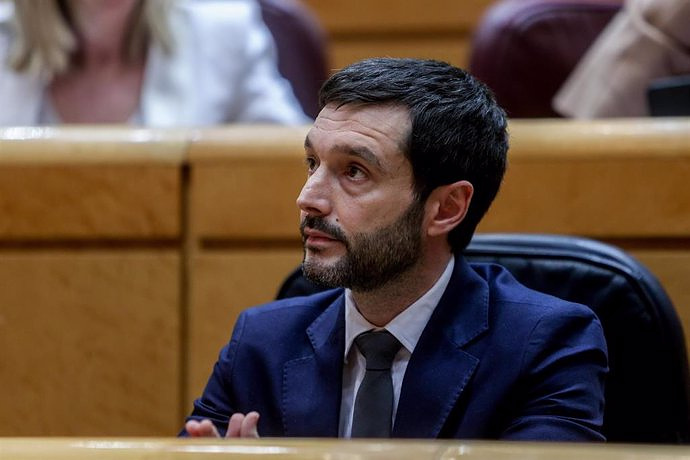The court recalls that criminal sanctions should be the last resort and points to civil and disciplinary channels
MADRID, 18 Ene. (EUROPA PRESS) -
The Supreme Court (TS) has annulled the sentence imposed on a retired lawyer who missed the deadlines to file an appeal on behalf of a client because he was not registered as a practicing lawyer, while stressing that, having ruled out "deception" , the appropriate route is not criminal but civil or even disciplinary.
The Criminal Chamber of the Supreme Court thus upholds the appeal filed by the lawyer and annuls the sentence of the Provincial Court of Valencia, which in turn confirmed the sentence to one year of disqualification, a fine of 2,700 euros and compensation of 30,000 euros to the customer.
According to the Supreme Court, the client had hired the lawyer to file a claim for patrimonial responsibility against the Ministry of Health of the Generalitat Valenciana for deficient performance. The agreed fees included the judicial route if the administrative failed.
The administrative claim was dismissed but the lawyer let the deadline pass to insist on that path or jump to court, something the client found out when he asked for explanations about the status of the case.
The lawyer was convicted of a crime of professional disloyalty under article 467.2 of the Criminal Code (CP), applicable only to lawyers registered in the corresponding Bar Association as practitioners, a condition that this lawyer did not meet, according to the TS.
The sentence, presented by Judge Manuel Marchena, indicates that, in accordance with the General Statute of the Legal Profession, the condition of practicing "constitutes a 'sine qua non' assumption so that the Law graduate can claim the status of professional", for what such status "corresponds exclusively" to the practicing collegiate.
In addition, the Second Chamber recalls "the consideration of the criminal law as an instrument of ultima 'ratio'", adding that, in the specific case, "an interpretation that leads to criminalizing any act of professional disloyalty (...) leads to the excessiveness in the interpretation of article 467.2 of the CP".
"The idea that disloyalty in the practice of law can imply, without further ado, the requirement of criminal responsibility is not reconciled with the need to reserve an application space for the sanctioning regime provided for in the General Statute of the Legal Profession," he says.
In this sense, it concludes that with regard to this lawyer, "ruled out the existence of a previous deception aimed at obtaining a profit, the damages caused as a result of the assumption of the task of legal efforts by a collegiate not authorized for the professional practice of law, they must be repaired by a means other than that offered by criminal law".
Specifically, it points out that "non-compliance with a contract (article 1544 of the Civil Code) or the requirement of disciplinary responsibility as a non-practicing collegiate (article 140 of the Statute) represent the ways to make any reparation claim for such damage a reality."

 Exploring Cardano: Inner Workings and Advantages of this Cryptocurrency
Exploring Cardano: Inner Workings and Advantages of this Cryptocurrency Seville.- Economy.- Innova.- STSA inaugurates its new painting and sealing hangar in San Pablo, for 18 million
Seville.- Economy.- Innova.- STSA inaugurates its new painting and sealing hangar in San Pablo, for 18 million Innova.- More than 300 volunteers join the Andalucía Compromiso Digital network in one month to facilitate access to ICT
Innova.- More than 300 volunteers join the Andalucía Compromiso Digital network in one month to facilitate access to ICT Innova.-AMP.- Ayesa acquires 51% of Sadiel, which will create new technological engineering products and expand markets
Innova.-AMP.- Ayesa acquires 51% of Sadiel, which will create new technological engineering products and expand markets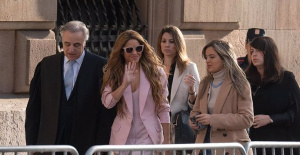 Prosecutor's Office requests the filing of a new case against Shakira for alleged tax crime
Prosecutor's Office requests the filing of a new case against Shakira for alleged tax crime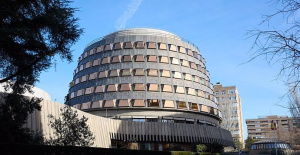 The Constitutional Court endorses the law that criminalizes harassment in abortion clinics
The Constitutional Court endorses the law that criminalizes harassment in abortion clinics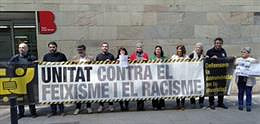 PSC and Junts join the commitment not to agree with Vox or Aliança Catalana
PSC and Junts join the commitment not to agree with Vox or Aliança Catalana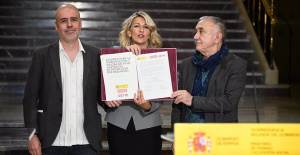 This is the subsidy reform: higher amounts and beneficiaries and compatibility of unemployment with a salary
This is the subsidy reform: higher amounts and beneficiaries and compatibility of unemployment with a salary How Blockchain in being used to shape the future
How Blockchain in being used to shape the future Not just BTC and ETH: Here Are Some More Interesting Coins Worth Focusing on
Not just BTC and ETH: Here Are Some More Interesting Coins Worth Focusing on They develop devices for the precise diagnosis of cancer patients
They develop devices for the precise diagnosis of cancer patients UMH researchers are working on a high-quality apricot crop that requires less irrigation water
UMH researchers are working on a high-quality apricot crop that requires less irrigation water The UPV develops an application to improve the quality of life of patients with glioblastoma
The UPV develops an application to improve the quality of life of patients with glioblastoma A sensor system obtains the fingerprint of essential oils and detects if they have been adulterated
A sensor system obtains the fingerprint of essential oils and detects if they have been adulterated A million people demonstrate in France against Macron's pension reform
A million people demonstrate in France against Macron's pension reform Russia launches several missiles against "critical infrastructure" in the city of Zaporizhia
Russia launches several missiles against "critical infrastructure" in the city of Zaporizhia A "procession" remembers the dead of the Calabria shipwreck as bodies continue to wash up on the shore
A "procession" remembers the dead of the Calabria shipwreck as bodies continue to wash up on the shore Prison sentences handed down for three prominent Hong Kong pro-democracy activists
Prison sentences handed down for three prominent Hong Kong pro-democracy activists ETH continues to leave trading platforms, Ethereum balance on exchanges lowest in 3 years
ETH continues to leave trading platforms, Ethereum balance on exchanges lowest in 3 years Investors invest $450 million in Consensys, Ethereum incubator now valued at $7 billion
Investors invest $450 million in Consensys, Ethereum incubator now valued at $7 billion Alchemy Integrates Ethereum L2 Product Starknet to Enhance Web3 Scalability at a Price 100x Lower Than L1 Fees
Alchemy Integrates Ethereum L2 Product Starknet to Enhance Web3 Scalability at a Price 100x Lower Than L1 Fees Mining Report: Bitcoin's Electricity Consumption Declines by 25% in Q1 2022
Mining Report: Bitcoin's Electricity Consumption Declines by 25% in Q1 2022 Oil-to-Bitcoin Mining Firm Crusoe Energy Systems Raised $505 Million
Oil-to-Bitcoin Mining Firm Crusoe Energy Systems Raised $505 Million Microbt reveals the latest Bitcoin mining rigs -- Machines produce up to 126 TH/s with custom 5nm chip design
Microbt reveals the latest Bitcoin mining rigs -- Machines produce up to 126 TH/s with custom 5nm chip design Bitcoin's Mining Difficulty Hits a Lifetime High, With More Than 90% of BTC Supply Issued
Bitcoin's Mining Difficulty Hits a Lifetime High, With More Than 90% of BTC Supply Issued The Biggest Movers are Near, EOS, and RUNE during Friday's Selloff
The Biggest Movers are Near, EOS, and RUNE during Friday's Selloff Global Markets Spooked by a Hawkish Fed and Covid, Stocks and Crypto Gain After Musk Buys Twitter
Global Markets Spooked by a Hawkish Fed and Covid, Stocks and Crypto Gain After Musk Buys Twitter Bitso to offset carbon emissions from the Trading Platform's ERC20, ETH, and BTC Transactions
Bitso to offset carbon emissions from the Trading Platform's ERC20, ETH, and BTC Transactions Draftkings Announces 2022 College Hoops NFT Selection for March Madness
Draftkings Announces 2022 College Hoops NFT Selection for March Madness